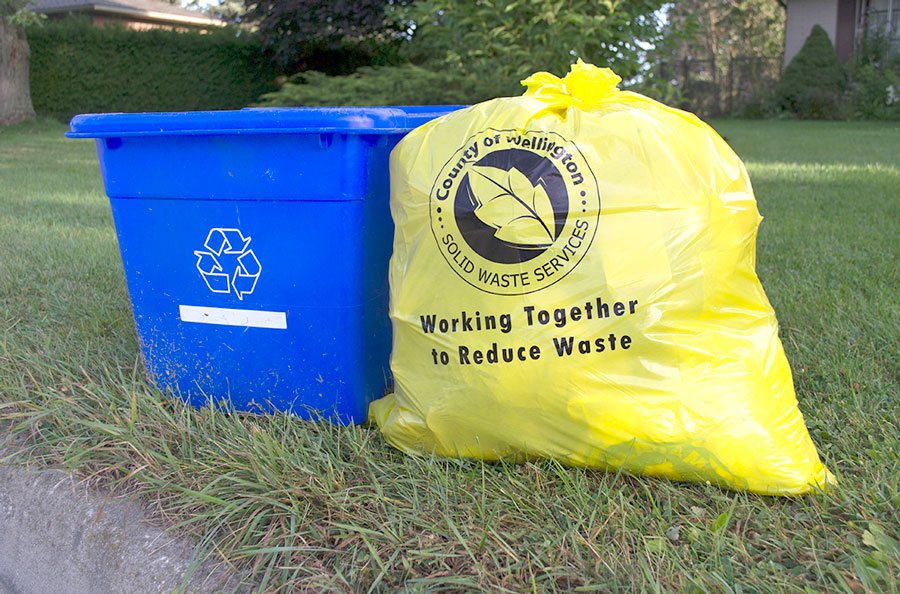GUELPH – The coming transition of the province’s Blue Box recycling program from municipal to producer responsibility offers both benefits and challenges for the County of Wellington.
A report from Solid Waste Services manager Das Soligo notes the province, through Bill 229 – the Protect, Support and Recover from COVID-19 Act (2020), has provided a framework to continue the transition of municipal recycling systems to full producer responsibility.
The transition has been phased in among Ontario municipalities and the County of Wellington’s transition is scheduled to begin in July of 2025.
“We’ll see the county save substantial money when the producers take over the Blue Box program. However, staff have concerns about how industrial, commercial and institutional blue box material will be handled,” councillor Steve O’Neill, solid waste services committee chair, told county councillors on Jan. 25.
“Currently we do curbside collection for our small businesses. We also have residents who take the recycling into our facilities, transfer stations and landfill … How do we handle it when the producers take over residential curbside collection?”
“There are a number of beneficial elements of the proposed regulation, such as transitioning approximately $1.8 to $2 million a year in recycling system costs to producers and standardizing and expanding the materials that will be accepted,” Soligo notes in his report.
However, he adds, “there are also several concerning aspects of the plan,” including the fact industrial, commercial and institutional businesses and organizations will not have any access to curbside collection services through the producer-led collection system.
“Staff envision several important decisions related to the post-transition landscape, that county council will need to make in the coming months,” the report states.
Among those decisions will be determining if the county should have a post-transition role in providing or organizing limited recycling services, such as recycling services for businesses.
“Will the county allow the industrial, commercial and institutional sector to use county recycling services, whether at the county’s transfer stations or through a curbside collection system?” the report asks council.
The report also notes that some county residents appear to prefer using waste facilities for their waste management needs, as opposed to the curbside collection services.
“Will the county continue to allow residential recycling drop-off at these facilities?” the report asks.
“Considering these examples of potential post-transition service options are complicated by the fact future recycling services will be at the county’s discretion, but also at the county’s cost,” the report notes.
County staff plan to produce a report on the transition in the spring and will continue to monitor the progress of the transition, reporting back to the solid waste services committee.
“Info from municipalities that are already on the producer takeover will be a good resource moving forward,” said O’Neill, who noted Wellington County is among the final group of municipalities to move to the new system.
“By January 2026 everybody in the province is supposed to be on producer responsibility,” he explained. O’Neill also told council “a targeted communications plan is being put in place to keep residents informed. It will include print, radio and social media.”
“Geographically, the county covers a large area with both urban and rural communities,” a staff report notes. “Reaching residents can be a challenge and does require a combination of traditional and modern communication methods. Different demographics also prefer to receive their information in a variety of ways.”
The plan will consist of two phases. Phase one will announce the change is coming and phase two will provide more details and information about what residents can expect on Jan. 1, 2026.
The budget for phase one is projected at $8,000, while $19,000 has been budgeted for the second phase.




